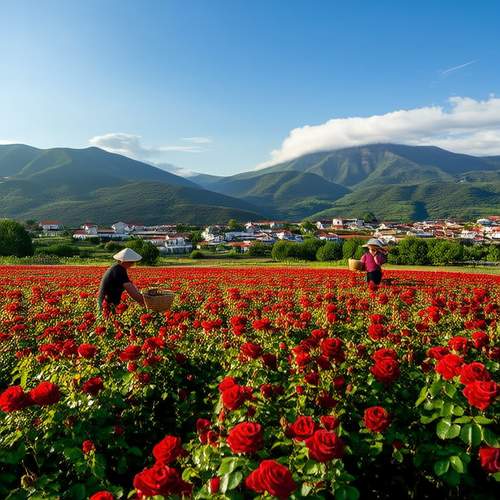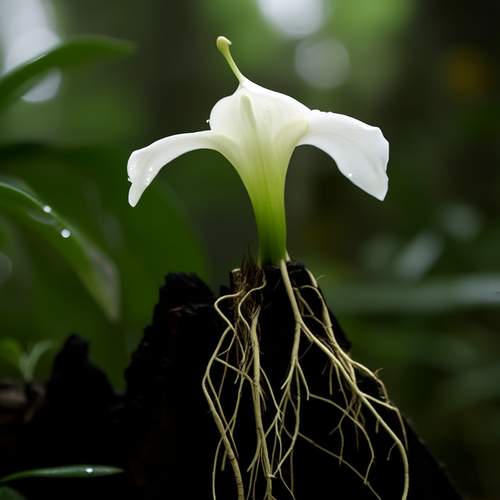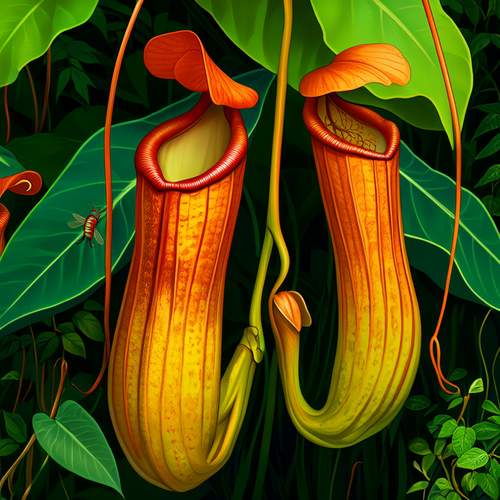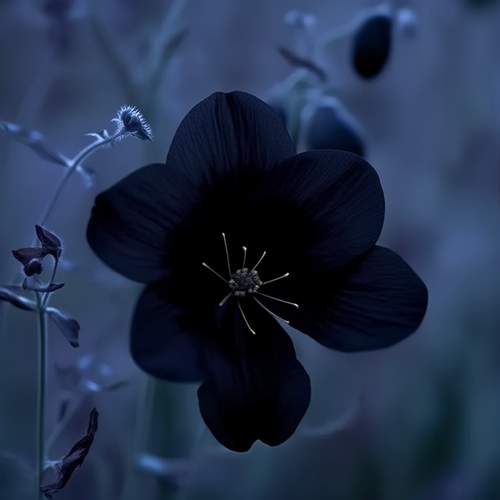In the heart of Bulgaria, nestled between the Balkan Mountains and Sredna Gora, lies the famed Rose Valley. This region, stretching across the towns of Kazanlak and Karlovo, has been the epicenter of rose oil production for centuries. Known as the "liquid gold" of Bulgaria, rose oil is a precious commodity in the global perfume industry, fetching prices higher than some precious metals. The story of how this fragrant elixir is crafted is as rich and intricate as the oil itself.
The tradition of rose cultivation in Bulgaria dates back to the 17th century, when the Damask rose (Rosa damascena) was first introduced to the region. The unique microclimate of the Rose Valley—characterized by mild winters, warm summers, and just the right amount of rainfall—proved to be the perfect environment for the roses to thrive. Over time, Bulgarian rose oil gained a reputation for its unparalleled quality, becoming a staple in luxury perfumery.
Harvesting the roses is a labor-intensive process that requires precision and timing. The petals must be picked at dawn, when their fragrance is most potent. This ritual, passed down through generations, involves entire families working together in the fields. The delicate petals are collected by hand, as any bruising or damage can affect the quality of the oil. It takes roughly 3,000 kilograms of rose petals to produce just one kilogram of rose oil, a testament to its rarity and value.
The distillation process is where the magic truly happens. Freshly harvested petals are placed in large copper stills, where they are steamed for several hours. The steam carries the essential oils from the petals, which are then condensed back into liquid form. The resulting mixture of rose oil and water is separated, with the oil rising to the top due to its lighter density. This centuries-old method, largely unchanged, ensures the preservation of the oil’s complex aroma and therapeutic properties.
Bulgarian rose oil is renowned for its deep, floral scent with subtle hints of honey and spice. Its complexity makes it a favorite among perfumers, who often use it as a base note in high-end fragrances. Beyond its aromatic qualities, rose oil is also prized in cosmetics and aromatherapy for its soothing and anti-inflammatory benefits. The global demand for this "liquid gold" continues to grow, with countries like France, the United States, and Japan leading as top importers.
Despite its lucrative market, the rose oil industry faces challenges. Climate change, fluctuating weather patterns, and labor shortages threaten the delicate balance required for rose cultivation. Younger generations are increasingly moving to urban areas, leaving fewer hands to tend the fields. Yet, efforts are being made to preserve this cultural heritage. Local cooperatives and government initiatives aim to modernize production while maintaining traditional methods, ensuring that the legacy of Bulgarian rose oil endures.
Visiting the Rose Valley during harvest season is a sensory experience unlike any other. The air is thick with the intoxicating scent of roses, and the sight of endless pink petals against the backdrop of rolling hills is breathtaking. The annual Rose Festival in Kazanlak celebrates this heritage with parades, folk dances, and even the crowning of a Rose Queen. It’s a vibrant reminder of the deep connection between the land, its people, and the golden essence they produce.
Bulgaria’s rose oil is more than just a commodity—it’s a symbol of tradition, craftsmanship, and nature’s bounty. From the careful cultivation of each bloom to the meticulous distillation process, every drop of this "liquid gold" tells a story of dedication and passion. As the world continues to seek out the finest ingredients, the Rose Valley remains a timeless source of one of nature’s most exquisite treasures.

By /May 21, 2025

By /May 21, 2025

By /May 21, 2025

By /May 21, 2025

By /May 21, 2025

By /May 21, 2025

By /May 21, 2025

By /May 21, 2025

By /May 21, 2025

By /May 21, 2025

By /May 21, 2025

By /May 21, 2025

By /May 21, 2025

By /May 21, 2025

By /May 21, 2025

By /May 21, 2025

By /May 21, 2025

By /May 21, 2025

By /May 21, 2025

By /May 21, 2025